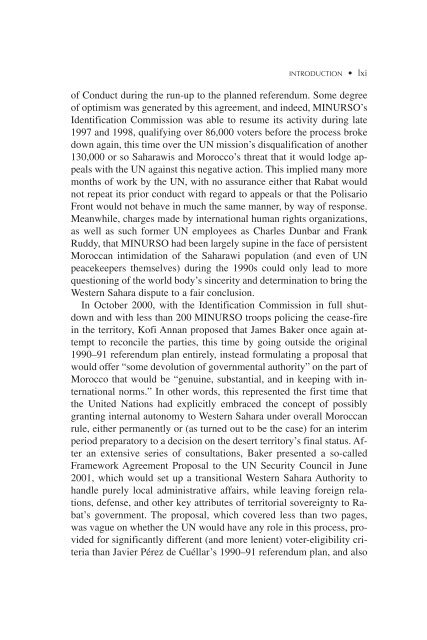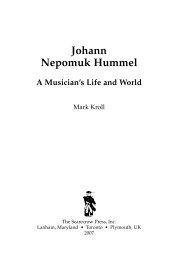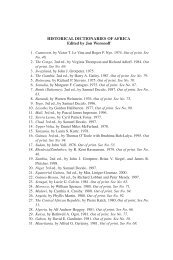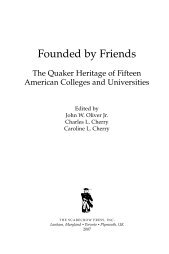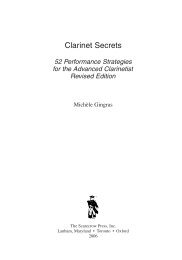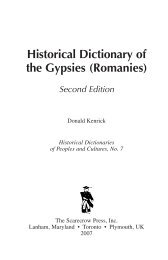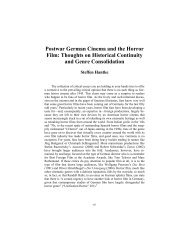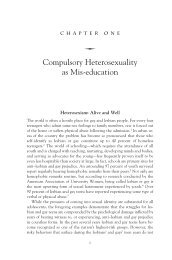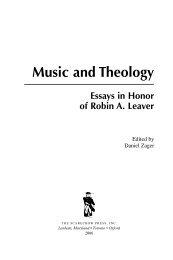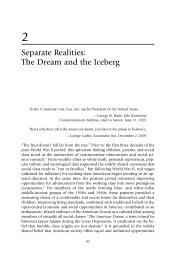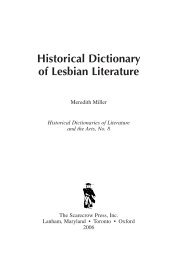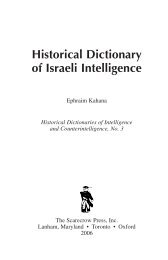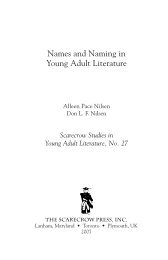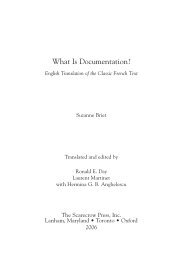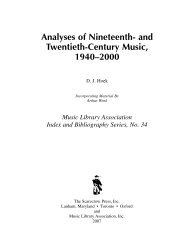Historical Dictionary of Western Sahara Third ... - Scarecrow Press
Historical Dictionary of Western Sahara Third ... - Scarecrow Press
Historical Dictionary of Western Sahara Third ... - Scarecrow Press
Create successful ePaper yourself
Turn your PDF publications into a flip-book with our unique Google optimized e-Paper software.
INTRODUCTION • lxi<br />
<strong>of</strong> Conduct during the run-up to the planned referendum. Some degree<br />
<strong>of</strong> optimism was generated by this agreement, and indeed, MINURSO’s<br />
Identification Commission was able to resume its activity during late<br />
1997 and 1998, qualifying over 86,000 voters before the process broke<br />
down again, this time over the UN mission’s disqualification <strong>of</strong> another<br />
130,000 or so <strong>Sahara</strong>wis and Morocco’s threat that it would lodge appeals<br />
with the UN against this negative action. This implied many more<br />
months <strong>of</strong> work by the UN, with no assurance either that Rabat would<br />
not repeat its prior conduct with regard to appeals or that the Polisario<br />
Front would not behave in much the same manner, by way <strong>of</strong> response.<br />
Meanwhile, charges made by international human rights organizations,<br />
as well as such former UN employees as Charles Dunbar and Frank<br />
Ruddy, that MINURSO had been largely supine in the face <strong>of</strong> persistent<br />
Moroccan intimidation <strong>of</strong> the <strong>Sahara</strong>wi population (and even <strong>of</strong> UN<br />
peacekeepers themselves) during the 1990s could only lead to more<br />
questioning <strong>of</strong> the world body’s sincerity and determination to bring the<br />
<strong>Western</strong> <strong>Sahara</strong> dispute to a fair conclusion.<br />
In October 2000, with the Identification Commission in full shutdown<br />
and with less than 200 MINURSO troops policing the cease-fire<br />
in the territory, K<strong>of</strong>i Annan proposed that James Baker once again attempt<br />
to reconcile the parties, this time by going outside the original<br />
1990–91 referendum plan entirely, instead formulating a proposal that<br />
would <strong>of</strong>fer “some devolution <strong>of</strong> governmental authority” on the part <strong>of</strong><br />
Morocco that would be “genuine, substantial, and in keeping with international<br />
norms.” In other words, this represented the first time that<br />
the United Nations had explicitly embraced the concept <strong>of</strong> possibly<br />
granting internal autonomy to <strong>Western</strong> <strong>Sahara</strong> under overall Moroccan<br />
rule, either permanently or (as turned out to be the case) for an interim<br />
period preparatory to a decision on the desert territory’s final status. After<br />
an extensive series <strong>of</strong> consultations, Baker presented a so-called<br />
Framework Agreement Proposal to the UN Security Council in June<br />
2001, which would set up a transitional <strong>Western</strong> <strong>Sahara</strong> Authority to<br />
handle purely local administrative affairs, while leaving foreign relations,<br />
defense, and other key attributes <strong>of</strong> territorial sovereignty to Rabat’s<br />
government. The proposal, which covered less than two pages,<br />
was vague on whether the UN would have any role in this process, provided<br />
for significantly different (and more lenient) voter-eligibility criteria<br />
than Javier Pérez de Cuéllar’s 1990–91 referendum plan, and also


